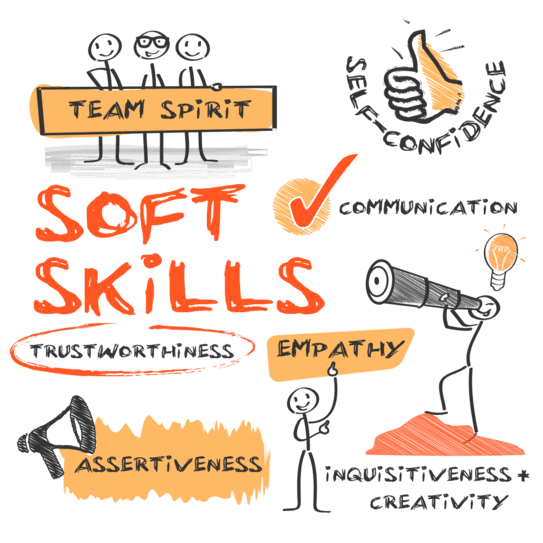With the emphasis on academics, test scores, and grade point averages, students may have an additional need to develop soft skills. These skills include self discipline to accomplish goals and the ability to get along with and influence others.
Young children can learn the social graces, manners, friendliness, and optimism. Throughout childhood, they can increase their people skills by learning effective communication, negotiation, and calmly solving problems. As they get older, they can learn to accept and benefit from suggestions and criticism, manage time, and handle stress.
Children and adults need to be aware of their own needs and how to effectively reach their goals. We all need to increase the skills of being good listeners, having empathy for others, and developing effective oral and written communication.
We need to find time to practice dealing with each other face-to-face. Getting along with many types of people allows us to be successful team players and influential leaders. Make sure that your children have developed these skills before high school graduation. Success in college and on the job will greatly increase with the use of these soft skills.


